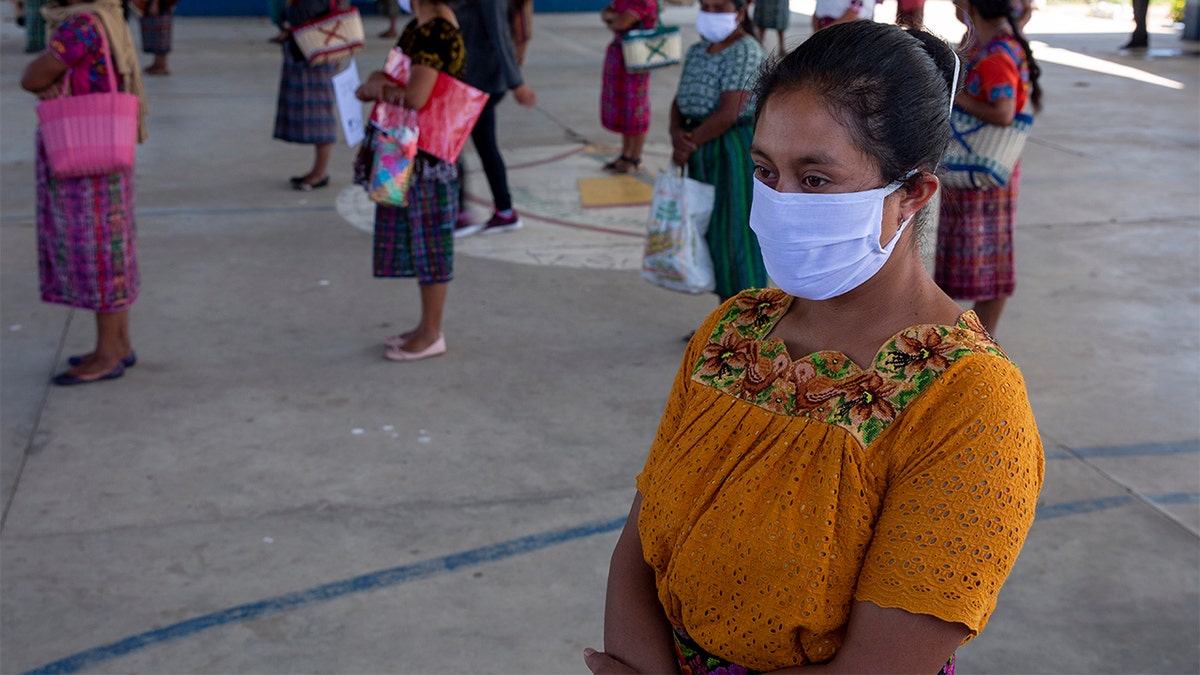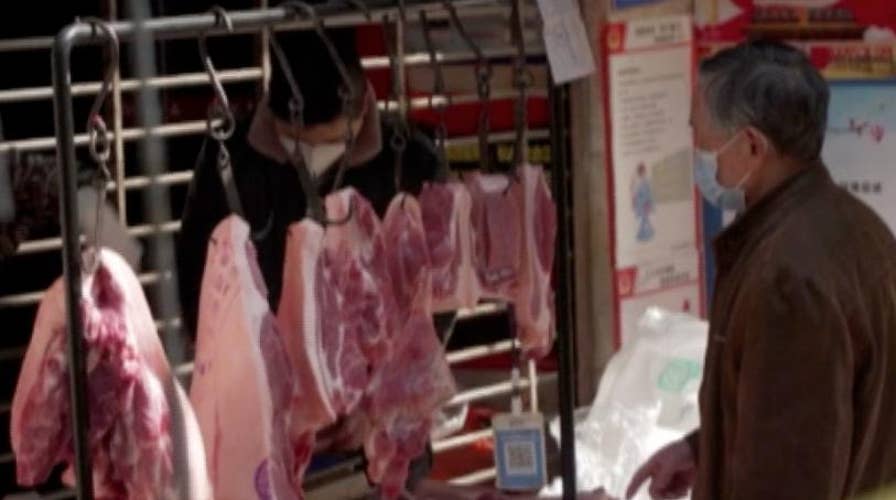New calls for China to shut down so-called 'wet markets'
Gillian Turner reports on latest calls for China to shut down wet markets and more questions about the origins of the coronavirus.
Get all the latest news on coronavirus and more delivered daily to your inbox. Sign up here.
The devastation wrought by the coronavirus pandemic across the developed world includes cutting into the financial lifelines for people across the global south.
The World Bank estimates that a record $529 billion was transferred to developing countries through official channels in 2018, the latest year for which figures are available. Billions more moved unrecorded in cash. Many of those remittances are sent home by people who work in service jobs or occupations, like day labor, that have no monthly paycheck and are worst affected by the global downturn. Some also comes from illegal immigrants ineligible for part of the massive aid packages uncorked by advanced economies.
With coronavirus shutting down industries, many earners in western economic centers can no longer afford to send their monthly $50, $100 or $200 to the developing world. The shock waves are pushing their relatives to desperation.

In this April 3, 2020 photo, women wearing protective face masks stand at a safe distance to help curb the spread of the new coronavirus, as they wait for food assigned to their children outside a school in the largely indigenous Xesuj village, Guatemala, where many residents depend on remittances, almost all from the U.S. (AP Photo/Moises Castillo)
Across Africa, where remittances have grown to surpass foreign aid and direct foreign investment and some $82 billion flowed in during 2018 alone, untold millions of people are already feeling the pinch. One money-transfer company in Europe sending funds to Africa saw an 80 percent drop in volume in a single week, the Washington-based Center for Financial Inclusion said last month.
CLICK HERE FOR FULL CORONAVIRUS COVERAGE
Remittances make up more than 5 percent of GDP in at least 13 African nations, sometimes far more, the Brookings Institution said last month. Kenya’s remittances are now its largest source of foreign exchange, its president said in December. More than a third of all remittances to Africa come from the European Union, and other significant sources are North America, Gulf nations and other African countries. Informal remittances, though not tracked in World Bank and other data, are estimated to be the source of billions of dollars more.

In this April 3, 2020 photo, a woman carrying a child walks past a closed courier business featuring a U.S. flag and the Spanish phrase: "Send to U.S.A" in the largely indigenous town of Joyabaj, Guatemala, where half of the residents depend on remittances, almost all from the U.S. (AP Photo/Moises Castillo)
Central America, a region heavily dependent on remittances from the United States, could see a 20 percent drop, from $23.9 billion last year to $19.12 billion this year, said Jonathan Menkos, director of the Central American Institute of Fiscal Studies.
Across all of Latin America and the Caribbean, remittances from the U.S. could drop between 7 percent and 18 percent this year, from last year’s $75 billion total, according to the Washington-based Inter-American Dialogue.
”’It is a wide range, and the largest drop may be more accurate unfortunately,″ said Dr. Manuel Orozco, director of migration, remittances and development at the think tank.

In this April 3, 2020 photo, Mayor Florencio Carrascoza Gámez, wearing a protective mask, poses for photos at his office in the largely indigenous town of Joyabaj, Guatemala, where half of the residents depend on remittances, almost all from the U.S. (AP Photo/Moises Castillo)
Asia is the top recipient of remittances in the world, with India getting the largest amount in the world in 2018 at $79 billion, followed by China at $67 billion, according to the World Bank. The Philippines is also in the top five recipients of remittances.
CLICK HERE FOR FULL CORONAVIRUS COVERAGE
In India, the southern state of Kerala accounts for almost 19 percent of the total remittances to the country. Tens of thousands from the state work in various Gulf countries and send money home. The tourism-reliant local economy has been badly hurt by the 21-day lock-down across India and the families who depend on remittance money are growing concerned.
The Associated Press contributed to this report.

